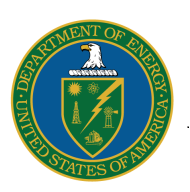Guidelines and Resources
The Conflict of Interest Committee Guidelines are based on several federal funding requirements, as well as nationally recognized consensus standards and guidelines.
NDSU and State Policies and Procedures
Agency requirements for FCOI
Federal FCOI Guidelines
The federal regulations and guidelines that follow are the basis for the NDSU conflict of interest program. This list is not all-inclusive. In cases where federal, state, and local regulations differ, NDSU follows the most stringent regulations.
National Institutes of Health FCOI Funding Guideline - 4.1.10 Financial Conflict of Interest
National Science Foundation FCOI Funding Guideline - 510 Conflict of Interest Policies
Public Health Services FCOI Funding Guidelines - Federal Reg 42cfr50
Department of Energy - Interim Conflict of Interest Policy
Agencies that follow the PHS FCOI Guidelines
This may be an incomplete list. We recommend checking sponsor guidelines to see if the agency has adopted the PHS SFI Regulations.
| Agency for Healthcare Research and Quality (AHRQ) | Agency for Toxic Substances and Disease Registry (ATSDR) | ||
| Centers for Disease Control and Prevention (CDC) | Food and Drug Administration (FDA) | ||
| Health Resources and Services Administration (HRSA) | Indian Health Service (IHS) | ||
| National Institutes of Health (NIH) | Office of Global Affairs (OG) | ||
| Office of the Assistant Secretary for Health (OASH) | Office of the Assistant Secretary for Planning and Evaluation | ||
| Office of the Assistant Secretary for Preparedness and Response (ASPR) | Office of Public Health and Science | ||
| Substance Abuse and Mental Health Services Administration (SAMHSA) | Administration for Children and Families | ||
| Administration on Aging | Centers for Medicare and Medicaid Services | ||
| Alliance for Lupus Research (ALR) | Alpha-1 Foundation | ||
| American Asthma Foundation | American Cancer Society (ACS) | ||
| American Heart Association (AHA) | American Lung Association (ALA) | ||
| Arthritis Foundation (AF) | CurePSP | ||
| Juvenile Diabetes Research Foundation (JDRF) | Lupus Foundation of America (LFA) | ||
| Patient-Centered Outcomes Research Institute (PCORI) | Susan G. Komen for the Cure |
How are Conflicts of Interest Reviewed and Managed?
I completed my COI Annual Disclosure. Now what? If I need a management plan, what wil it include and what will I need to do?
COI Annual Disclosures under go a review process to identify whether a conflict of interest exists, and if it does, to manage the conflict.
How are COI Annual Disclosures reviewed to determine whether a Management Plan is needed?
The COI Administrator is responsible for collecting and reviewing annual disclosures submitted through the Novelution COI Module. A preliminary review is conducted to determine if there is a potential for a conflict of interest to exist, given the discloser's interests and activities with external entities, and their existing relationships with other NDSU employees or students. The COI Administrator may consult with the discloser to obtain additional information or to clarify informaiton in a COI Annual Disclosure.
If the Annual Disclosure does not show any relationships or activities that present the potential for a COI, the review will be completed at this stage.
If the COI Administrator determines that there is a potential COI, the disclosure will be referred for secondary review.
Secondary review is typically conducted at the monthly COI Committee meeting but may at times be conducted through expedited review procedures. Management of common scenarios generally results in a Management Plan using one of the standard templates. More complicated COIs require the committee to determine how to manage the conflict, including drafting a management plan which specifically addresses any unusual circumstances. To assist in these reviews, the COIC may involve representatives from the discloser's department, Research and Creative Activity, and/or seek legal guidance as necessary.





